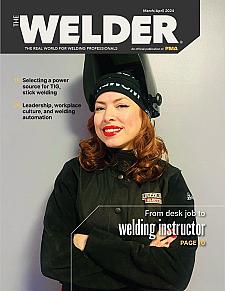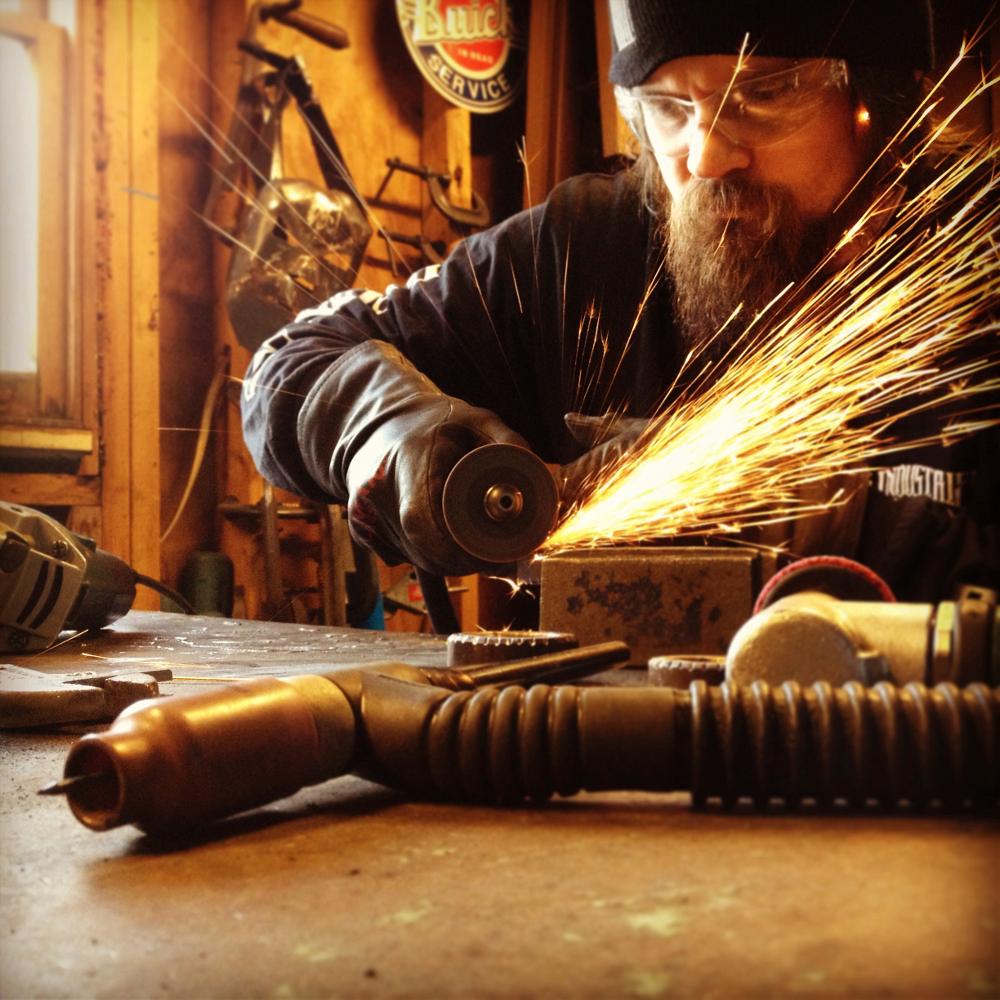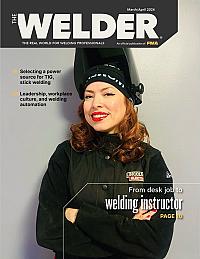Owner, Brown Dog Welding
- FMA
- The Fabricator
- FABTECH
- Canadian Metalworking
Categories
- Additive Manufacturing
- Aluminum Welding
- Arc Welding
- Assembly and Joining
- Automation and Robotics
- Bending and Forming
- Consumables
- Cutting and Weld Prep
- Electric Vehicles
- En Español
- Finishing
- Hydroforming
- Laser Cutting
- Laser Welding
- Machining
- Manufacturing Software
- Materials Handling
- Metals/Materials
- Oxyfuel Cutting
- Plasma Cutting
- Power Tools
- Punching and Other Holemaking
- Roll Forming
- Safety
- Sawing
- Shearing
- Shop Management
- Testing and Measuring
- Tube and Pipe Fabrication
- Tube and Pipe Production
- Waterjet Cutting
Industry Directory
Webcasts
Podcasts
FAB 40
Advertise
Subscribe
Account Login
Search
Separating craftsmen from hacks—it’s in the details
- By Josh Welton
- February 26, 2015
“It's the little details that are vital. Little things make big things happen.” – John Wooden
If I had to pick one quality for someone to have that is vital to good work, it can be summed up in this phrase: attention to detail. And I find myself going back to that quality every time I see subpar craftsmanship.
The thing is, attention to detail is separate from talent, from experience and skill, and even from work ethic. It’s a concept that can overcome a myriad of shortcomings, yet it often gets glossed over or ignored completely in a fabricator’s early learning stages.
I’ve often heard, in regards to focusing on “the little things,” that fabricators either “have it or they don’t,” but my opinion is that it just isn’t emphasized enough.
Attention to detail can manifest itself in many ways. If a MIG welding machine isn’t running right, you don’t just keep plugging along in hopes that it’s good enough; you troubleshoot it.
Making sure that metal is cleaned properly before fabricating isn’t an extra step, it’s an integral part of the process to creating a good piece.
Cleaning welds might seem like a time waster to some, but in doing so you’re also inspecting the weld. And if you find undercut or porosity, you fix it.
Double-checking measurements post-weld to make sure the heat didn’t cause it to move, and then taking corrective measures if it did, is imperative to producing a quality product.
None of the above is dependent on skill or talent. Nor is any of it particularly difficult. They’re simply habits that should start from day one. There is no excuse that justifies glossing over the details, and in the end these details separate craftsmen from hacks.
subscribe now

The Welder, formerly known as Practical Welding Today, is a showcase of the real people who make the products we use and work with every day. This magazine has served the welding community in North America well for more than 20 years.
start your free subscriptionAbout the Author

About the Publication
- Stay connected from anywhere

Easily access valuable industry resources now with full access to the digital edition of The Fabricator.

Easily access valuable industry resources now with full access to the digital edition of The Welder.

Easily access valuable industry resources now with full access to the digital edition of The Tube and Pipe Journal.
- Podcasting
- Podcast:
- The Fabricator Podcast
- Published:
- 04/16/2024
- Running Time:
- 63:29
In this episode of The Fabricator Podcast, Caleb Chamberlain, co-founder and CEO of OSH Cut, discusses his company’s...
- Trending Articles
Sheffield Forgemasters makes global leap in welding technology

ESAB unveils Texas facility renovation

Engine-driven welding machines include integrated air compressors

How welders can stay safe during grinding

The impact of sine and square waves in aluminum AC welding, Part I

- Industry Events
16th Annual Safety Conference
- April 30 - May 1, 2024
- Elgin,
Pipe and Tube Conference
- May 21 - 22, 2024
- Omaha, NE
World-Class Roll Forming Workshop
- June 5 - 6, 2024
- Louisville, KY
Advanced Laser Application Workshop
- June 25 - 27, 2024
- Novi, MI




























